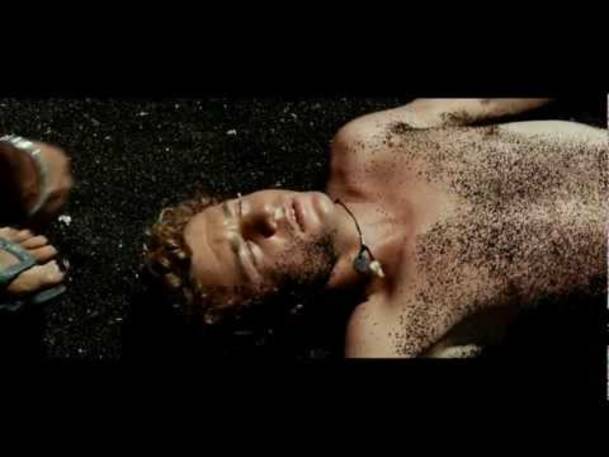


On January 24th, the Academy of Motion Picture Arts and Sciences President's Tom Sherak and Academy member and Oscar-nominated actress Jennifer Lawrence will announce the final nominations for the 84th edition of the Academy Awards... as always there might be some surprises, good or bad, but one thing is for sure, Italy is not included in the final selection to be presented in the Foreign Film category.
Terraferma, Emanuele Crialese's film on immigration set in modern day in Sicily, has just been excluded from the race. Indeed the Italian film is not one of the nine (on Tuesday they will become five) that will compete for the much coveted Oscar. The director himself, on the set of his new film, immediately replied “I am thinking about the future! I am in Brazil! My congratulations to all those who made it.” Riccardo Tozzi, the film's producer, did not complain and simply had to say that “things did not go as we wished, despite all our efforts to promote our candidate in the US.” “That's too bad,” Paolo Del Brocco of RaiCinema added, “It is a wonderful film and in tune with the historical moment we live in.”
Crialese's film did not seduce the jury of the Academy or the American public, and the general idea we get from the Italian press is that the film did not make it because it has not been promoted properly not because of its quality. There has not been a strong promotional campaign or a thorough distribution in the nation's movie theaters. In New York City's film school, New York Film Academy, during a class when asked about Terraferma, only a few film students (three) knew about it and mostly because of personal Italian connections.
Meanwhile, Italian cinema is extremely successful in other countries, such as France where Gomorrah and Il Divo have won prestigious awards at Cannes. Questions are raised: is Italian cinema hard to be appreciated by American audiences?
When the film was presented at the Venice Film festival, the Hollywood reporter wrote “Riding the wave of Italian immigrant dramas that have been topical for years, writer-director Emanuele Crialese’s Terraferma is an unremarkable story flying a passionate moral banner.
The film contrasts Italy’s traditional humanist values to inhuman new laws aimed at stemming illegal immigration and insists it’s morally imperative to rebel against them. Its main commercial outlet will certainly be Italy, where the terrible clash between Italian law and “the law of the sea” will resonate the most.” In just a few lines the topic has been labeled as “old,” the story “unremarkable” and the film not “commercial” in other countries.
Or should we blame weak promotional campaigns? Or better yet, should we blame a lack of good luck? Or simply tough competition?
The last Italian film that made it into the final Oscar list was Don't Tell by Cristina Comencini, back in 2006.Through the history of the Academy Awards, Italy has received twenty seven nominations and won 12 awards. The last Oscar to an Italian film was awarded in 1999 to Benigni's Life is Beautiful (nobody can forget the Tuscan director and actor, he also won an Oscar for Best Actor, jumping on the theater's seats when Sofia Loren read his name aloud).
The Academy has selected the following films/countries: the Iranian A Separationby Asghar Farhadi, (it has already won a Golden Globe), the Belgian film noir Bullhead by Michael R. Roskam, the Canadian Monsieur Lazhar by Philippe Falardeau, the Danish Superclasico by Christian Madsen, the German Pina by Wim Wenders, the Israeli Footnote by Joseph Cedar, the Moroccan Omar Killed me, by Roschdy Zem, the Polish In Darkness by Agnieszka Holland and the Taiwanese Warriors in the Raimbow: Seeding Bale by Wei Te-sheng.
Italy might be represented in other categories, as it is a strong country in more technical areas such as art direction, costume design and cinematography.
Source URL: http://test.iitaly.org/magazine/focus/art-culture/article/italy-excluded-foreign-language-oscar-race
Links
[1] http://test.iitaly.org/files/terraferma-trailer-ufficiale